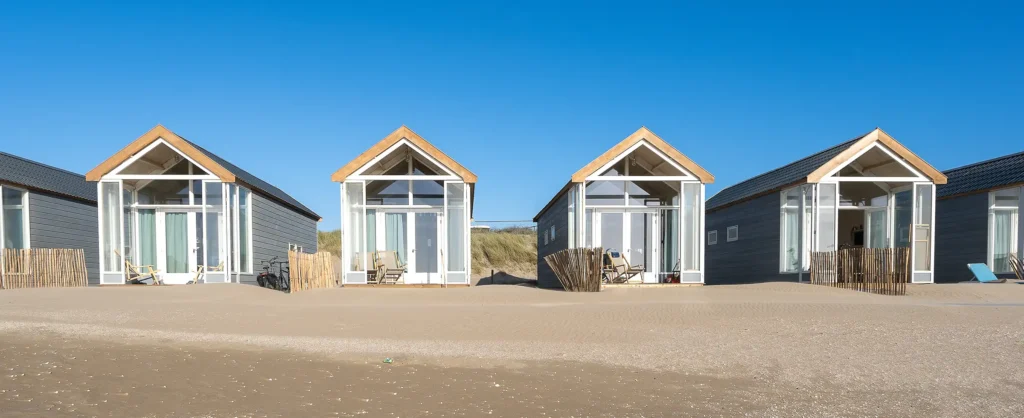Dubbed ‘Generation Rent’ by some, young people have had to adapt to and struggle against, one of the worst housing crises in recorded history. And, with recent mortgage rate hikes and a cost of living crisis threatening to make matters worse, many would-be first-time buyers are being forced to reckon with a lifetime spent in private rented housing navigating a hostile housing market.
According to an article by The Independent, more than three-quarters of the UK’s privately held housing wealth is currently held by over 50s, and the average age of first-time buyers in the UK rose to a shocking 32 in 2023. It is safe to say that these numbers suggest a widespread and systemic issue with the accessibility of homeownership for young people.
But to what extent are they being locked out of the housing market? And what can we as stakeholders do to improve their situation? The property professionals at Concept Capital Group are here to provide some insight into the housing crisis as seen through the eyes of young people.
How Young Britons Became ‘Generation Rent’
Loosely defined in the Financial Times as ‘younger Britons who have been priced out of the housing market and are paying a substantial percentage of their income in rent’, Generation Rent has become deeply associated with a number of the problems keeping young people in an unwinnable position when it comes to housing.
In 2016, research published in the Guardian indicated that more than half of the UK’s population born in the 50s, 60s and 70s had purchased property by their early 30s. In comparison, a 2021 survey by the Resolution Foundation and Lloyds Banking Group showed that young, single people were less than half as likely to be homeowners that year than they were 30 years ago.
What led the comfortable young homeowner of yesteryear to devolve into the overwhelmed, underserved, never-ending renter we see today? While questions of social and economic downturns are difficult to answer in full, analysts consider the leading causes behind the Generation Rent phenomenon to include:
A Lack of Housebuilding and Housing Supply
It should be no secret by now that the UK has struggled to meet its housebuilding targets in recent years, with Housing Secretary Michael Gove recently going so far as to ease them for local councils. Though housing associations and investors have stepped in to support housebuilding efforts, the chronic undersupply of housing has caused lasting affordability and availability issues in both the public and private sectors. The current shortfall of 4.3 million homes missing from the national housing market would require 442,000 homes to be built every year for the next 25 years to meet housebuilding targets.
A 2021 report by the UK think tank Centre for Cities suggests that the UK’s long-spanning issues with housing supply began in 1947, leading to a gradual crawl towards the peak levels of undersupply we experience today. This has only been compounded by the lack of housebuilding, prompting one in six young people in the UK to settle for poor-quality homes.
Harder to Save, Harder to Buy
Comparatively, the difficulty of saving for and purchasing a home has risen significantly for the average earner. According to a 2018 report on the barriers to homeownership for young people by the Institute for Fiscal Studies (IFS), homeownership numbers among young people have fallen by as much as 55% since 1997. The same period also saw the following:
- The average UK property price rising by 173% across the UK
- The average pay for 25-34-year-olds growing by just 19%
- The number of people who borrowed 4.5 times their salary for a home purchase falling from 93% to 61%
Other findings from the IFS highlight that:
- Those born in the 1950s were the last to experience generational increases in wealth
- Slowed real earnings growth for most workers in the past 10-15 years
- Poorer households spend more income on housing than richer ones, with the difference increasing since 1968
Overall, this data suggests that the average first-time buyer faces more difficulty in accumulating the wealth to buy a home. These extreme generational variances in house prices, mortgage rates, the cost of living and earnings growth have had such a pronounced impact on housing affordability that 2023 saw the lowest number of UK first-time buyers in a decade.
The Wild Ways Young People Afford Housing
In a historically unaccommodating housing market, young people stuck in Generation Rent have had to adopt new ways of living to rent and buy their homes without breaking the bank. Even amid a housing crisis, some of these methods are unsettlingly desperate, proving just how severe their situation has become.
Together Forever?
Though most members of Generation Rent struggle with housing affordability, dual-income couples are unsurprisingly able to better their chances. 80% of young people lack the earnings and the savings to buy a home, so non-home-owning couples pooling resources to afford housing is nothing new. Cohabiting couples were the fastest-growing household type in the UK in 2019 and have carved out a sizable share of the housing market compared to their peers.
With a recent study by Ocean Finance suggesting that single people in the UK are spending an average of £7,564.50 more compared to those with partners, avoiding the dreaded ‘single tax’ may be one of many reasons homeowning and renting couples choose to stay together. A darker undercurrent to this strategy, however, is that a third of Britons are staying in their relationship because they are unable to afford to live on their own. Recent findings from a Shelter survey suggest that as many as one in ten people in the UK are in an unhappy relationship with their partner purely because they are unable to afford rent or mortgage payments otherwise.
Young People, Childhood Homes
With home purchases seeming like an unattainable dream and rental costs skyrocketing, an increasingly high number of young people have opted for the nuclear option – or, rather, the nuclear family option.
According to census data released by the Office for National Statistics in 2023, the number of families in England and Wales with “children” who are legally adults living with their parents rose by 13.6% between 2011 and 2021. Likewise, the average age of adult “children” rose to a median of 24 years – one more than in 2011. Even the number of 25- to 29-year-olds living with their parents rose by 30% in the same period. The 4.9 million adult children reported as living with their parents in a 2021 ONS census is a marked increase on the previous all-time high of 3.4 million recorded in 2017.
More and more young people are opting to stay at home rather than contend with the challenges of today’s housing market, avoiding the issue of affordability altogether.
Alternative Natives
With the undersupply of affordable and decent housing, some young people are fighting back against an unfair housing market through alternative accommodation solutions.
In recent years, this phenomenon has ranged from more traditional approaches such as shared accommodation to options as extreme as living on a houseboat. For renters, a recent surge in home-sharing initiatives where older homeowners provide spare rooms to young sharers in exchange for assistance has even drawn negative attention for potentially being exploitative.
Across the country, many would-be homeowners are moving into tiny homes as a cost-effective solution to traditional property ownership. And, even in the event of a traditional property purchase, the proposal of a 99% mortgage deal, through which borrowers would only put down a 1% deposit towards their first home, has become a topic of hot debate for its implications.
For many members of Generation Rent, alternative housing solutions represent their best hope of homeownership in today’s housing crisis.
Alternative Housing with Concept Capital Group
At Concept Capital Group, we offer an alternative solution to traditional property investment designed to support low-income and vulnerable households. These high-quality homes are both cost-effective and energy-efficient, allowing them to stay affordable for tenants and profitable for our investors.
For more on supporting low-income households by investing in modular homes, book a call with our team today.













